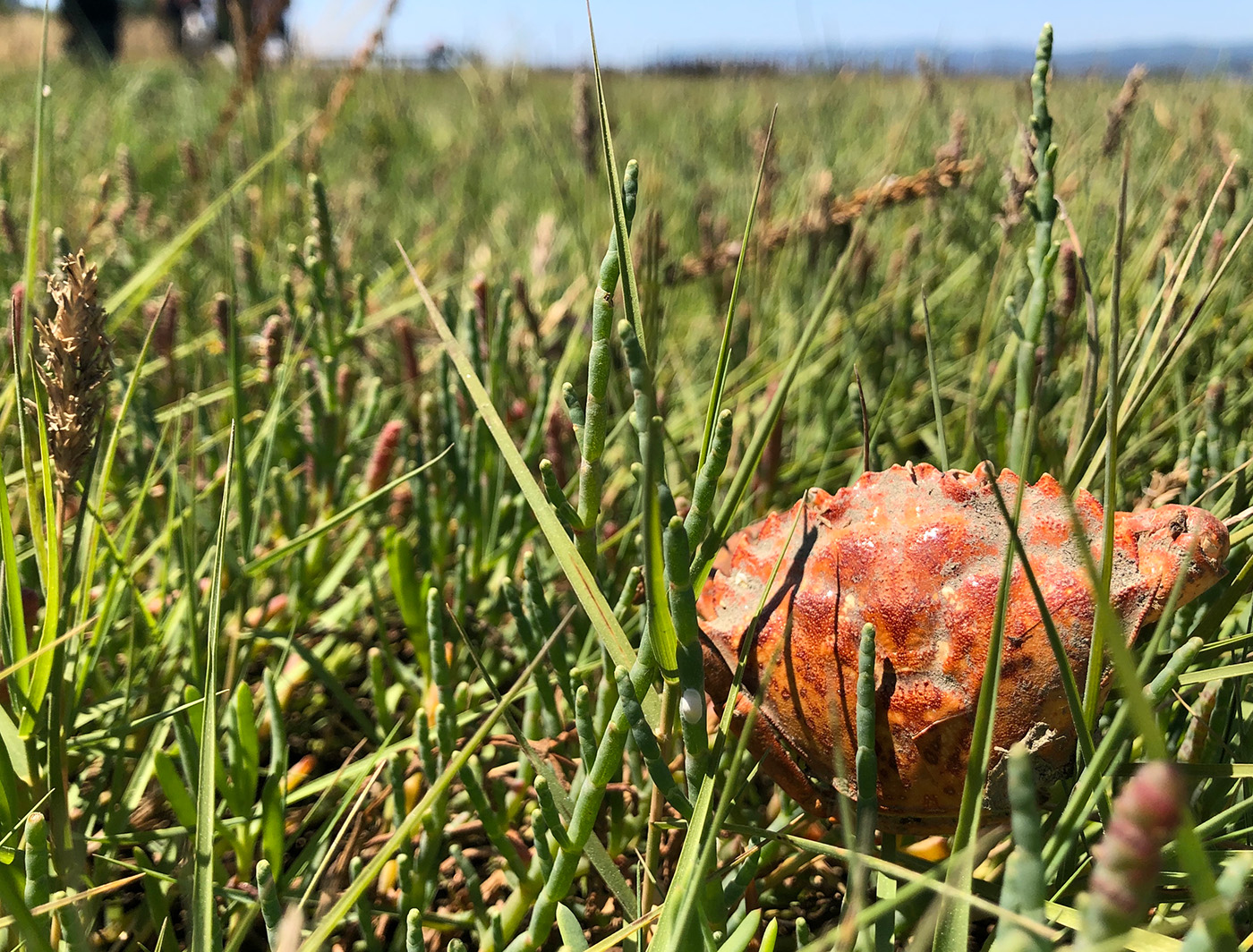In the past few years, the Washington Department of Fish and Wildlife, tribal co-managers, and partners have identified an explosion of invasive European green crabs (Carcinus maenas) in the Salish Sea and the outer coast of Washington. WSU Extension and Washington Sea Grant (WSG) are collaborating to launch Molt Search, a program to train and mobilize volunteers to help detect and report the presence of European green crab molts so that management efforts can be directed to new areas as needed.
The European green crab is a hardy and voracious predator native to western Europe and northwestern Africa. This species has invaded intertidal zones around the globe and poses a threat to our ecological, economic, and cultural resources in Washington State. The crab tolerates a wide range of salinity (1.4 to 54 ppt) and temperature (0 – 35 degrees C) and can survive out of water for several days. They feed on clams, mussels, and other native shellfish. And their digging can destroy estuary and marsh habitat, and eelgrass beds, which provide valuable habitat for many creatures including salmon.
In 2015, WSG launched an early detection monitoring network for green crabs along the inland shorelines of Washington. The WSG Crab Team network currently monitors and traps at more than 55 sites along inland shorelines, and agency and tribal partners trap at additional sites, but these only cover a small fraction of the suitable nearshore habitat for this animal. The detection of European green crab molts could serve as an early indicator of the presence of European green crabs in the area. If citizen scientists, volunteers, shoreline landowners, and beachgoers know what to look for, they can provide valuable information that will help to guide future monitoring and trapping efforts.
WSU Extension and WSG are now collaborating on an outreach program – Molt Search – that will teach volunteers what to look for and how to report the presence of European green crab molts along inland shorelines. Molt Search will train and engage residents around Puget Sound and the Strait of Juan de Fuca to conduct molt surveys in a range of locations that are currently not being monitored and to report their findings via a smartphone app. WSG is developing a training curriculum that WSU Extension will help to deliver via training workshops to residents of the Puget Sound counties in late April or early May. WSU will also coordinate several “bioblitz” group surveys in May, and volunteers will be encouraged to continue surveying over the summer at publicly accessible beaches and/or their own private tidelands.
WSG Crab Team’s expertise and experience in community-based green crab early detection and monitoring, combined with WSU’s volunteers and community relationships should help to make this effort a success. More details on this effort are to follow.



